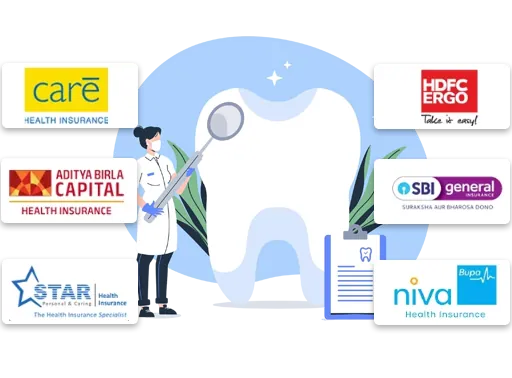Long Vs. Short-Term Insurance




Bindiya is a seasoned content writer specializing in keeping readers acquainted with the insurance industry, term insurance developments, and life insurance sector shifts. With an experience of 3 years in insurance, Bindiya ensures that her readers stay well informed with the insurance developments and factually correct information.
Reviewed By:

Raj Kumar has more than a decade of experience in driving product knowledge and sales in the health insurance sector. His data-focused approach towards business planning, manpower management, and strategic decision-making has elevated insurance awareness within and beyond our organisation.
Updated on Jul 01, 2025 4 min read
Difference Between Short-Term and Long-Term Health Insurance
When buying a health insurance plan, customers have a dilemma about whether to go for a long-term or short-term insurance plan. However, the choice of plan depends upon the individual’s situation, requirements, and goals in picking a suitable insurance plan, so it is recommended that you understand your insurance needs first. As healthcare costs are soaring, it is best to have the right insurance backup to avoid using up your savings during medical emergencies.
Long-term and Short-term health Insurance policies are two types of health insurance coverage. They both differ in their tenure, premium, and renewal. Both are suitable in different scenarios. While both aim to provide financial protection during medical emergencies, they differ significantly in their duration, coverage, benefits, and suitability for various life situations. Understanding these distinctions is crucial to making an informed decision that aligns with your individual needs and long-term financial goals.
Long Term vs Short Term Health Insurance: Comparison Table
| Factors | Short-Term Health Insurance | Long-Term Health Insurance |
| Premium Amount | The premium amount is lower compared to long-term healthcare insurance. | The premium amount is slightly higher if compared to short-term medical insurance. |
| Policy Tenor | 6 to 12 Months | 2 to 3 Years |
| Add-On Covers | No add-ons are available in short-term medical insurance. | Many add-on covers are available with long-term medical plans. |
| Renewability | Short-term health plans need to be renewed frequently. | Long-term health policy doesn’t require frequent renewal. |
| Pre-Existing Illnesses | Pre-existing ailments are not covered. | Pre-existing ailments are covered, and they have a fixed waiting period. |
| Suitability | Short-term health plans are suitable for: NRIs or international students. Individuals who are switching jobs. People are switching between insurance companies. | Long-term healthcare insurance is suitable for: Individuals looking for long-term coverage. Policyholders who want to secure the healthcare expenses of their family members. Individuals who want to enjoy extensive coverage. |
| Downside | Compared to long-term healthcare insurance, the overall premium paid year on year is higher. Can not customise the policy once bought. Requires frequent renewal, such as yearly. | Porting the insurance policy to a new insurance company isn’t easy because of the longer policy tenure. The customer has to pay a higher premium amount at once. |
What is Short-Term Health Insurance?
A short-term health insurance in India is a kind of medical insurance policy that offers coverage for a limited period. Generally, they have a validity period of 6 months to 12 months. Good short-term health insurance plans offer non-permanent coverage for any medical emergencies or requirements such as pre- and post-hospitalisation, ambulance charges, organ donor expenses and more. And foremost, they can be more affordable as compared to long-term since the premiums are on the lower side. Let’s take a look at the features and benefits of short-term health insurance plans and who should buy them.
Benefits of Short-Term Medical Plans
- Short-term medical insurance offers tax benefits under Section 80D of the Income Tax Act of 1961.
- Short-term policies last for a shorter period, such as 12 months or less.
- Short-term plans need to be renewed frequently.
- The premiums under short-term plans are very cost-effective.
- You can switch your short-term plan to a different insurance company at the time of your health insurance renewal.
- Due to their non-permanent nature, these plans generally do not cover maternity, critical illness, or pre-existing diseases.
- They also provide extra perks such as free health checkups for not making any claims during the policy tenure.
What is Covered In Short-term Health Insurance?
Typically, short-term health insurance covers:
- In-patient Hospitalization Expenses: This is the core coverage. It includes costs incurred when you are admitted to a hospital for at least 24 hours. This usually covers:
- Room rent (often with a sub-limit)
- Nursing fees
- Doctor’s consultation fees during hospitalization
- Operation theatre (OT) charges
- Anesthesia charges
- Costs of medicines and consumables
- Surgical procedures
- Emergency Care: This includes medical treatment required in an emergency situation, such as accidents or sudden illnesses. Ambulance charges are also usually covered.
- Pre and Post-Hospitalization Expenses: Some plans may cover expenses incurred for a limited period before and after hospitalization (e.g., 30 days pre-hospitalization and 60 days post-hospitalization for major planned treatments). However, these periods might be shorter or have specific caps compared to long-term plans.
- Daycare Procedures: These are medical procedures or surgeries that require less than 24 hours of hospitalization due to technological advancements (e.g., cataract surgery, dialysis). Coverage for these is often included, possibly with specified sub-limits.
- Organ Donation Expenses: Some short-term plans might cover expenses related to organ donation where the insured is the recipient.
- Preventive Health Check-ups: A few plans might offer coverage for basic preventive health check-ups.
- AYUSH Treatments: A limited number of short-term plans might offer coverage for alternative treatments like Ayurveda, Yoga & Naturopathy, Unani, Siddha, and Homoeopathy (AYUSH), but this is less common and usually with specific conditions.
Who Should Buy a Short-Term Health Policy?
Short-term medical insurance plans are the best option for people who are unsure about buying a long-term policy. Short-term insurance will be highly useful for the following category of people:
- International students studying or travelling in foreign countries as it secures Non-Resident Indians (NRIs) from visiting the country for a brief duration.
- For people who switch jobs and require short-term health coverage while switching jobs or insurance providers, short-term plans are a suitable option.
- As most countries have mandatory insurance requirements for visitors so anyone travelling abroad for business or vacations needs short-term insurance.
Disadvantages of Short-Term Medical Insurance
- Short-term plans do not provide coverage for pre-existing conditions.
- You cannot benefit from the NCB in short-term plans.
- Short-term plans generally have less coverage for diseases and medical expenses compared to long-term plans.
- They need frequent renewal, which may need a little more attention than long-term plans.
What is Long-Term Medical Insurance?
Long-term health insurance is a health insurance plan with a tenure of around 2 to 3 years or more, depending on the insurer. Because of its permanent nature, policyholders can even get coverage for pre-existing diseases (PED). However, for the plan to cover pre-existing diseases, one would have to complete the waiting period specified under the plan. You can also get additional coverage for daycare treatments, comprehensive insurance plans where everything lies under an umbrella, which isn’t possible with short-term plans.
Benefits of Long-Term Health Plans
- Long-term health insurance plan covers pre-existing diseases so that you can enjoy insurance coverage for a longer period in the event of such a prolonged medical treatment.
- No need to renew the policy every year, so you can stop worrying about frequent policy renewals of your health plan.
- The long-term policy also covers alternative treatments such as AYUSH.
- Long-term healthcare insurance gives the policyholder access to add-on benefits like critical illness coverage, maternity and newborn coverage, etc., along with wellness programs. They can even get the benefit of advanced treatment.
- Protection from premium variations, when the health insurance premium rises during the tenure of your health insurance plan, you will continue to remain unaffected by it.
What is Covered in Long-term Health Insurance?
- In-patient Hospitalization Expenses: This is fundamental and covers all costs associated with being admitted to a hospital for 24 hours or more. This includes:
- Room rent (often with higher limits or no cap)
- Nursing care
- Doctor’s fees and specialist consultations
- Surgical expenses (surgeon’s fees, OT charges, anesthesia)
- Medicines, drugs, and consumables
- Diagnostic tests during hospitalization
- ICU charges
- Pre and Post-Hospitalization Expenses: These plans typically cover medical expenses incurred for a specified period before hospitalization (e.g., 30, 60, or 90 days) and after discharge (e.g., 60, 90, or 180 days). This includes doctor consultations, diagnostic tests, and follow-up medications related to the hospitalization.
- Daycare Procedures: Coverage for a wide range of daycare procedures that don’t require 24-hour hospitalization due to advanced medical technology.
- Ambulance Charges: Costs for emergency ambulance transportation to the hospital.
- Maternity Benefits: Many long-term plans offer maternity coverage after a specified waiting period (usually 2-4 years), covering delivery expenses (normal and C-section), pre-natal, and post-natal expenses.
- Coverage for Pre-existing Diseases (PEDs): After a defined waiting period (commonly 2-4 years), long-term plans will cover medical expenses arising from pre-existing conditions. This is a crucial feature for individuals with chronic illnesses.
- Critical Illness Cover: Often available as an in-built benefit or as an add-on rider, providing a lump sum payment upon diagnosis of specified critical illnesses (e.g., cancer, heart attack, stroke).
- AYUSH Treatments: Coverage for treatments under Ayurveda, Yoga & Naturopathy, Unani, Siddha, and Homoeopathy.
- Organ Donor Expenses: Covers the medical and surgical expenses of the organ donor when the insured is the recipient.
- Domiciliary Hospitalization: Coverage for medical treatment taken at home if hospitalization is not feasible or advisable, as certified by a doctor.
- Health Check-ups: Many long-term plans offer annual health check-ups, often starting after a claim-free year.
- No Claim Bonus (NCB): A significant benefit where the sum insured increases (or premium decreases) for every claim-free year, providing an incentive for maintaining good health and continuity.
- Optional Covers/Riders: You can often customize your long-term plan with various add-ons like:
- Personal Accident Cover
- Daily Hospital Cash Allowance
- Room Rent Waiver
- New-Age Treatments (e.g., robotic surgery, deep brain stimulation)
- OPD Cover (though less common for comprehensive coverage)
- Restoration/Reinstatement Benefit: If you exhaust your sum insured during a policy year, this benefit restores the sum insured for subsequent claims in the same year.
- Mental Healthcare: With recent regulations, many long-term policies now include coverage for mental health conditions.
Disadvantages of Long-Term Health Insurance Plans
- It could be difficult to make changes to long-term plans once they are bought.
- People may not be inclined towards long-term plans, in case health insurance premiums need to be paid in a lump sum, so the cost of a long-term plan will be much higher.
- In the market, there are very few senior and super-senior citizens with affordable long-term plans.
Who Should Buy a Long-Term Health Policy?
With many advantages, long-term policies are best suited for people who have stable jobs and are looking for comprehensive health coverage for themselves as well as for their families. A long-term health policy protects the policyholders against any unexpected illnesses or accidents. The following are the categories of people who should look into getting a long-term policy:
- A person who needs to be prepared for any medical emergencies should aim to have a long-term health policy.
- An individual who does not want to renew their policy frequently should opt for a long-term insurance plan to avoid the pain of renewing the policy frequently.
- A person looking to get medical insurance at a moderate rate should go for a long-term plan as the premiums for these plans are often lesser than short-term plans.
- Young people should especially go for long-term health plans as they can benefit from getting a lower premium for their long-term plan, as compared to the elderly who has to pay higher premiums.
Long-Term Vs Short-Term Health Insurance - What to Choose?
Choosing between long-term and short-term health insurance in India is a critical decision that depends heavily on your individual circumstances, financial goals, and health needs. There’s no one-size-fits-all answer, so let’s break down when to choose each type.
To make an informed decision, consider these factors:
- Your Health Status: If you have any pre-existing conditions or a family history of serious illnesses, long-term coverage is almost always preferable.
- Duration of Need: Do you need temporary coverage for a few months, or do you require protection for the foreseeable future?
- Budget: Short-term plans have lower upfront premiums, but long-term plans offer better value and discounts over extended periods.
- Desired Coverage Scope: Do you need basic emergency coverage, or comprehensive protection with benefits like critical illness and maternity?
- Life Stage: Young, healthy individuals might consider short-term plans for immediate needs, but as you grow older or start a family, long-term plans become increasingly vital.
Bottom Line
In conclusion, while short-term health insurance serves a valuable purpose in specific transitional scenarios, long-term health insurance is the gold standard for robust, comprehensive, and sustainable healthcare security in India. It’s about protecting your health and your finances for the journey ahead, not just the next few months. Prioritize establishing a strong, long-term health insurance foundation, and use short-term plans only as necessary temporary bridges.
Consult for Personalized Insurance Advice

But how does it work?
Schedule a call with India’s number 1 trusted advisor with a 4.5+ rating on Google. We are not your average insurance agents. Our advisors are experts in their insurance knowledge and will give you the right information at the right time. The service is free of cost! Don’t worry, we won’t spam as we value your time.
Health Insurer Network Hospitals
Long-Term vs Short-Term Health Insurance: FAQs
1. What is the tenure of a long-term health insurance policy?
Generally, the tenure of a long-term health insurance policy is 2-3 years.
2. What is the tenure of a Short-term health insurance policy?
The tenure of a short-term health insurance policy is 6-12 months.
3. Does short-term plans cover pre-existing diseases?
No, short-term plans do not cover pre-existing diseases.
4. Does the long-term plan cover family members?
Yes, generally long-term plans have the family floater option, embedded in their plans.
5. Which of the following is a more cost-effective long-term or short-term health insurance plan?
Long-term health insurance plans have lower premiums as compared to short-term plans, hence they are easier on the pocket.
6. What is better, long-term or short-term health insurance?
When comparing long-term and short-term health insurance, the general consensus is that long-term health insurance is almost always the better choice for comprehensive and sustainable healthcare protection. Short-term plans serve a very specific, temporary purpose and are not a substitute for robust coverage.
7. What is the difference between long-term and short-term health insurance plans?
The core difference between long-term and short-term health insurance plans lies in their duration of coverage, scope of benefits, and suitability for different life situations.
8. What are the disadvantages of short-term health insurance plans?
While short-term health insurance plans offer affordability and flexibility for temporary needs, they come with several significant disadvantages that make them unsuitable for long-term health security.
Health Insurance Companies
Know More About Health Insurance Companies
Share your Valuable Feedback
4.4
Rated by 2632 customers
Was the Information Helpful?
Select Your Rating
We would like to hear from you
Let us know about your experience or any feedback that might help us serve you better in future.


Written By: Bindiya Sinha
Bindiya is a seasoned content writer specializing in keeping readers acquainted with the insurance industry, term insurance developments, and life insurance sector shifts. With an experience of 3 years in insurance, Bindiya ensures that her readers stay well informed with the insurance developments and factually correct information.




















Do you have any thoughts you’d like to share?